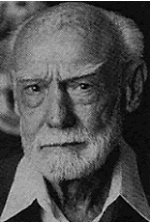Sperry’s central theme is that mind and consciousness are dynamic, emergent properties of the living brain in action and they exert overall control of the brain. Individual neural brain cells have no more control of the brain than the spokes of a wheel have of its rotation or direction. The rotation and direction involve a different order or level of interaction.
The flow and the timing of impulses through any brain cell are governed by the overall properties of the cerebral circuit system they are in and by the relationship of that circuit system to other circuit systems.
The brain has “sets” (shifting patterns of central excitation) that will open one group of circuit pathways while at the same time closing, repressing, or inhibiting other circuit potentialities that might otherwise be open and available for impulse traffic. These changes of “set” are responsible, for example, for such things as a shift of attention, a turn of thought, a change of feeling, or a new insight.
Brain states like perception, emotion, reason, belief, insight, judgment, cognition, and others can trigger each other and they govern the inner impulse traffic, including its electrochemical and biophysical aspects. An idea is just as real as a molecule, a cell, or a nerve impulse. Ideas cause ideas and help evolve new ideas.
Conscious phenomena are emergent functional properties of brain processing. They exert an active control role in shaping the flow patterns of cerebral excitation. These higher order mental patterns have their own subjective qualities and operate by their own causal laws and principles which are different from, and cannot be reduced to those of neurophysiology.
Sperry believes that reductionism is a valid and important method of obtaining knowledge but only studying the parts destroys the very interrelationships by which complex systems, like the brain, function.


